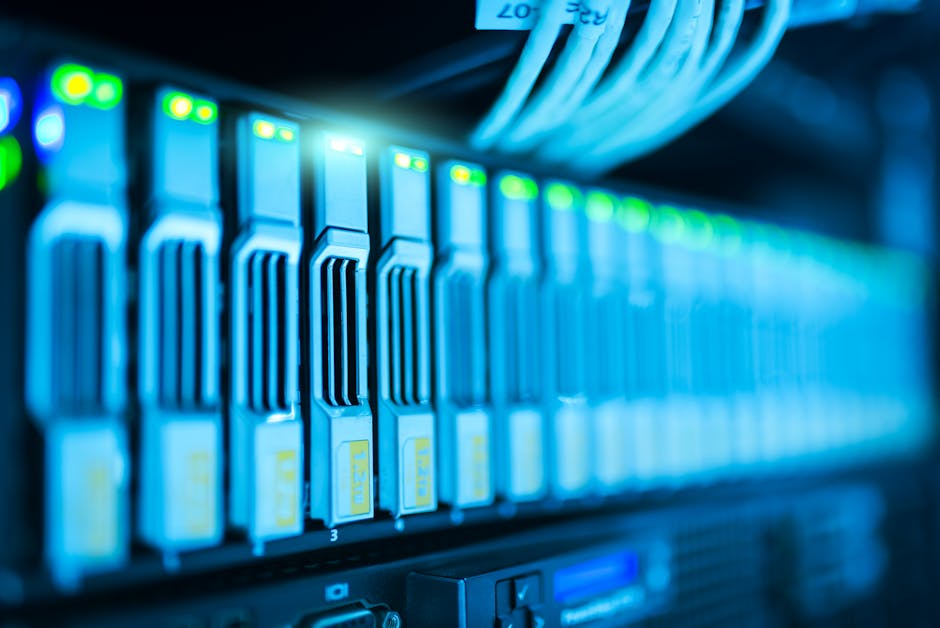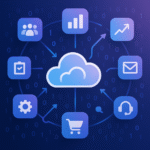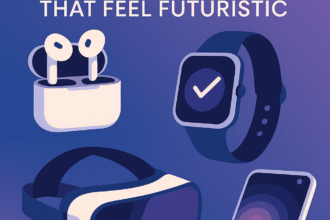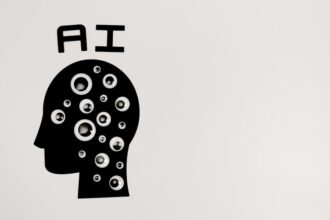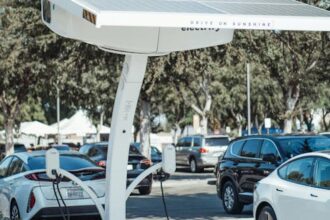Technology doesn’t just evolve—it accelerates. The innovations we once considered futuristic are now entering mainstream adoption, reshaping how we live, work, and interact with the world. As we step into 2025, the pace of technological transformation has never been faster, with breakthroughs in artificial intelligence, biotechnology, energy, and computing pushing the boundaries of what’s possible.
In this article, we’ll explore the top 10 emerging technologies in 2025 that are set to shape the future, examining not only their potential but also the industries they’ll disrupt and the societal implications they’ll bring.
1. Artificial General Intelligence (AGI)
Artificial intelligence has dominated tech conversations for years, but 2025 marks a turning point: the transition from narrow AI (task-specific systems) to Artificial General Intelligence (AGI). Unlike today’s models, AGI can perform a wide range of tasks at human—or even superhuman—levels.
- Why it matters: AGI could revolutionize healthcare (diagnosing diseases instantly), education (personalized learning at scale), and business (autonomous decision-making).
- Challenges: Ethical concerns, control mechanisms, and job displacement.
- Industry impact: Expect massive investment in AI safety and governance as companies and governments race to harness AGI responsibly.
2. Quantum Computing at Scale
Quantum computing has long been in the experimental stage, but 2025 is the year where real-world applications will finally emerge. Companies like IBM, Google, and startups such as IonQ are pushing quantum chips toward commercial viability.
- Why it matters: Quantum computers can solve problems in seconds that would take classical supercomputers millions of years.
- Use cases: Drug discovery, financial modeling, climate simulation, and cybersecurity.
- Industry impact: Cryptography will undergo a paradigm shift as quantum computers threaten traditional encryption standards.
3. Next-Generation Batteries & Energy Storage
The clean energy revolution depends on better batteries—and 2025 is seeing breakthroughs in solid-state batteries, lithium-sulfur, and sodium-ion technologies.
- Why it matters: These batteries promise higher energy density, faster charging, and longer life cycles.
- Impact areas: Electric vehicles (EVs), renewable energy storage, and mobile devices.
- Industry impact: EV adoption could accelerate globally as range anxiety and charging times become things of the past.
4. Brain-Computer Interfaces (BCIs)
The line between human and machine is blurring, thanks to brain-computer interfaces. Companies like Neuralink and Synchron are leading efforts to allow direct communication between the brain and external devices.
- Why it matters: BCIs could restore mobility for paralyzed patients, enhance cognitive functions, and enable seamless human-AI interaction.
- Future potential: Imagine typing emails by thought or controlling prosthetics with natural ease.
- Ethical debates: Privacy, consent, and the potential misuse of neural data.
5. CRISPR and Next-Gen Gene Editing
Biotechnology is undergoing a revolution with precision gene-editing tools that could eliminate genetic diseases, extend human lifespan, and even modify crops for climate resilience.
- Why it matters: The fight against cancer, Alzheimer’s, and rare genetic disorders is reaching a turning point.
- Industry impact: Agriculture, healthcare, and pharmaceuticals will be radically transformed.
- Debates: The ethical implications of “designer babies” and genetic inequality.
6. 6G Networks & Hyperconnectivity
While 5G is still being deployed, 6G development is accelerating, with rollouts expected around 2030. However, 2025 will see the first practical pilots and infrastructure investments.
- Why it matters: 6G promises speeds up to 100x faster than 5G, enabling real-time holographic communication and hyper-immersive virtual reality.
- Use cases: Smart cities, autonomous vehicles, and massive IoT ecosystems.
- Industry impact: Telecommunications and digital services will converge in unprecedented ways.
7. Synthetic Biology
Synthetic biology is about designing and constructing new biological parts, systems, and organisms. By 2025, it’s becoming a mainstream tool in medicine, agriculture, and environmental sustainability.
- Why it matters: From lab-grown meat to biofuels, synthetic biology can reduce environmental impact while scaling production.
- Applications: Personalized medicine, biodegradable plastics, and sustainable food sources.
- Challenges: Biosafety, biosecurity, and regulatory oversight.
8. Autonomous Vehicles & Advanced Robotics
Self-driving cars and next-gen robotics are moving from hype to reality. With improved AI, sensors, and regulatory clarity, 2025 will see significant adoption across logistics, transport, and manufacturing.
- Why it matters: Reduces accidents, increases efficiency, and transforms supply chains.
- Robotics angle: From humanoid robots in warehouses to AI-driven drones in agriculture.
- Industry impact: Labor markets will shift, creating demand for robotics engineers and AI ethicists.
9. Space Technologies & Commercial Spaceflight
2025 is a pivotal year for space exploration, with private companies like SpaceX, Blue Origin, and Rocket Lab driving down costs of orbital access.
- Why it matters: Space isn’t just about exploration anymore—it’s becoming an economic frontier.
- Applications: Satellite megaconstellations for global internet, space mining, and even lunar infrastructure projects.
- Industry impact: A trillion-dollar space economy is on the horizon.
10. Extended Reality (XR) and the Metaverse 2.0
The “metaverse hype” of the early 2020s is evolving into something far more tangible in 2025. With advancements in AR, VR, and mixed reality (MR), the Metaverse 2.0 is more immersive, practical, and business-driven.
- Why it matters: Beyond gaming, XR will transform remote work, education, and retail.
- Future use cases: Virtual campuses, AI-driven avatars, and immersive commerce.
- Industry impact: Big Tech and startups alike are battling to create the dominant platforms.
